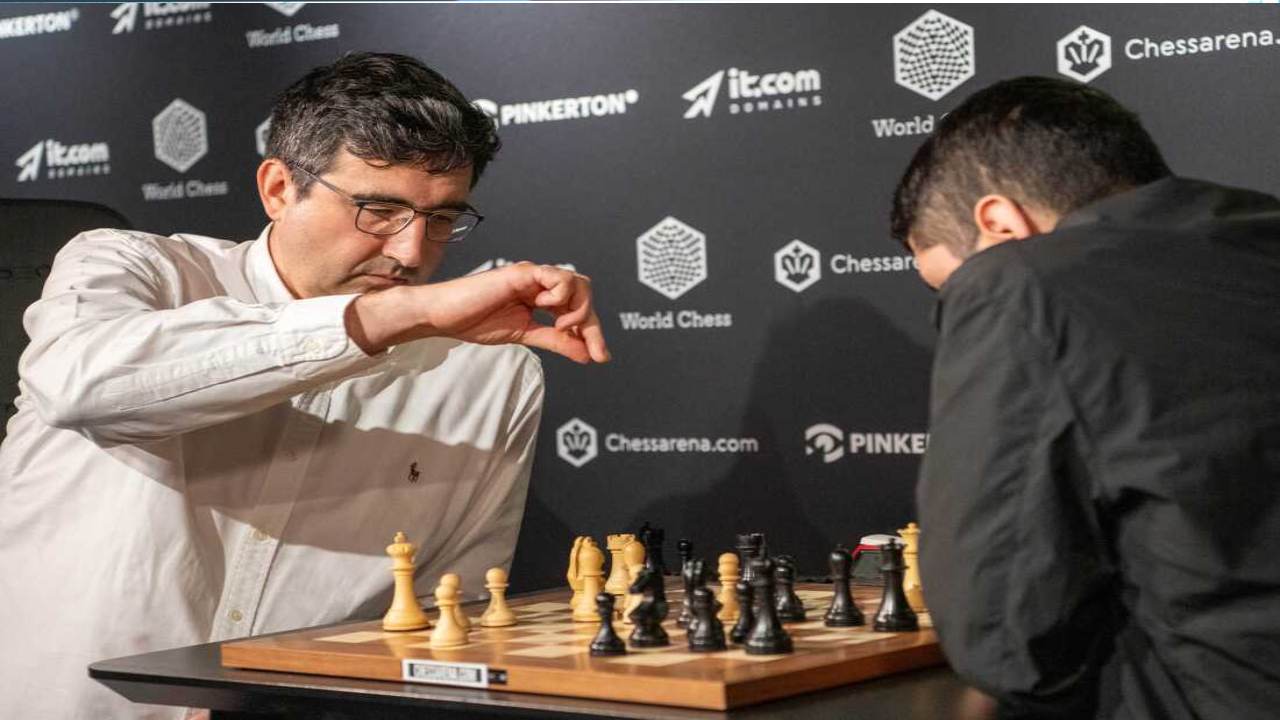Vladimir Kramnik Investigated for Bullying After Death of Grandmaster Daniel Naroditsky
Ohana Magazine – The global chess community is reeling from grief and controversy after the sudden death of Grandmaster Daniel Naroditsky. He was only 29 years old, yet he had already built an impressive legacy as a teacher, streamer, and competitor. His death came unexpectedly, and while the cause remains private, the aftermath has drawn global attention. Now, the spotlight has shifted to Vladimir Kramnik, a former world champion, who faces a formal investigation into alleged bullying and harassment.
From Accusations to Investigation
The conflict between the two grandmasters began months ago. Vladimir Kramnik, who ruled the chess world from 2000 to 2007, repeatedly accused Naroditsky of cheating in online games. His statements spread quickly across social media, generating heated discussions. Meanwhile, Naroditsky denied the accusations and shared that they had taken an emotional toll. During his last Twitch stream, he admitted, “Ever since the Kramnik stuff, I feel like if I start doing well, people assume the worst.”
After his death, FIDE (the International Chess Federation) announced a formal investigation into Kramnik’s actions. The organization aims to determine whether his public comments crossed ethical boundaries and contributed to a toxic atmosphere. Consequently, this case has reignited a broader conversation about online behavior, accountability, and mental health in competitive chess.
“Read More : Big Change: NCAA Lets College Athletes Bet on Professional Sports Starting November 1“
FIDE’s Response and Ethical Stance
FIDE President Arkady Dvorkovich quickly addressed the growing controversy. He described Kramnik’s remarks as “reckless and ungrounded,” stressing that the ethics commission would conduct an independent review. Moreover, he reminded the public that “any form of bullying or harassment is unacceptable in sports or in life.”
In addition, Dvorkovich pointed out that online debates within the chess community have become increasingly harmful. Too often, conversations spiral into personal attacks that damage reputations and affect mental well-being. Therefore, this investigation serves as both a warning and a reflection of how digital communication can blur moral lines.
Vladimir Kramnik’s Perspective
Although Kramnik remains admired for his brilliance on the chessboard, his behavior outside of it has divided fans. He famously defeated Garry Kasparov in 2000 and became one of the most respected strategists of his generation. However, in recent years, he has developed a reputation for making outspoken and sometimes controversial statements about cheating and online play.
Following the backlash, Kramnik denied any wrongdoing. On X (formerly Twitter), he wrote that he hoped “the real truth about this tragedy will be revealed.” Yet, his words came across as defensive rather than compassionate. As a result, many fans felt disappointed, believing a true leader should respond with empathy, not deflection. Still, others argue that Kramnik’s outspokenness reflects his passion for fair play, though it may have been poorly expressed.
“Read More : The Pro Bowl Revolution: Inside the NFL’s Game-Changing Shift to Super Bowl Week“
The Human Cost of Online Conflict
Beyond the headlines, this story reveals a harsh truth about mental health in competitive chess. The game may appear calm, but its players often face enormous psychological pressure. When public criticism escalates into personal attacks, even the strongest minds can feel overwhelmed. Sadly, Naroditsky’s situation shows how harmful unchecked online aggression can become.
Furthermore, this case sheds light on how social media magnifies every statement. A single post from a world champion can shape public opinion instantly. From my perspective, this tragedy illustrates that empathy must guide every public conversation especially when it involves human lives. In an age where information spreads faster than understanding, compassion is more crucial than ever.
A Defining Moment for FIDE and Chess Culture
This investigation could redefine how the chess world addresses ethics, communication, and mental health. If Kramnik is found guilty, he could face suspension or even a permanent ban from FIDE events. However, the consequences go beyond punishment. The organization must now show that no player, regardless of rank or reputation, is above accountability.
Moreover, this case highlights an urgent need for new social media guidelines for players. As more chess professionals interact with fans online, FIDE may introduce stronger measures to prevent digital harassment. This moment could ultimately transform how the sport protects its athletes, both emotionally and professionally.
A Call for Respect and Compassion
Daniel Naroditsky was more than a grandmaster he was a mentor and inspiration to many aspiring players. His death serves as a sobering reminder of how words can influence lives, even unintentionally. Therefore, the chess community must learn from this tragedy. Respect, kindness, and empathy should define the future of the game.
As for Kramnik, this investigation offers him a chance to reflect. True greatness in chess isn’t only about logic and mastery it’s also about humility and respect. The board may have only 64 squares, but life’s challenges extend far beyond them. Through compassion and accountability, chess can once again become a space of intellect and integrity.













